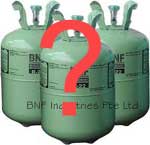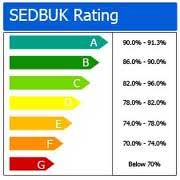
This mandatory inspection is designed to ensure the integrity of your air conditioning system. Fluorinated greenhouse gases are among the Kyoto Protocol groups of gases for which the EU has committed itself to reduce emissions. EC Regulation 842/2006 on certain fluorinated greenhouse gases is the legal instrument by which emissions reductions are to be delivered. The requirements of the protocol came into full effect on the 4th July 2011.
Why are F-Gas Air Conditioning Inspections required?
F-Gas are chemicals that contain Fluorine within their chemical make up. The Fluorine within the gas acts as a Green House gas. Green House gas has the potential to form a reflective layer in the atmosphere. This reflective layer causes harmful rays from natural sunlight to reflect back to the earth’s surface rather than pass to the atmosphere. By reflecting the harmful rays back to the earth a build up of Greenhouse gases build up. This in turn warms up our planet, which the effects are not fully known yet. It is called Greenhouse warming because the planet is warming up as though it was a greenhouse in a garden.
When are F-gas air conditioning inspections required?
Systems which hold more than 3kg of refrigerant, but less than 30kg of HFC gas should be checked and inspected every 12 months for leaks to the system. There should be a site log and each system should be labeled to show the date of inspection and amount of refrigerant within the system.
Systems with over 30kg but less than 300kg of HFC gas should be checked every 6 months or every 12 months if an automatic leak detection system is fitted. The leak detection system should also be tested.
Systems with over 300kg of HFC should be checked every 3 months and requires mandatory leak detection system, which needs to be checked every 12 months.
What should an F-gas air conditioning inspection cover ?
[ul style=”2″] [li]Testing in accordance with the BS EN 15004 standard will satisfy the F Gas obligations, as all gaseous fire protection systems should be checked every 6 months to meet the standard requirements. [/li] [li]If a requirement to fit Refrigerant gauges to the system for any reason whether to test or service the equipment should be leak tested and within 30 days should be re inspected. [/li] [li]All systems should be labelled.[/li] [li]All Systems are required to have taken all measures to prevent leaks. Repairs to detected leakages should be carried out as soon as possible. [/li] [li]Refrigerant Gas that has been reclaimed from a system should be sent away for destruction or cleaning by an authorised company and F Gas Certification should be held to demonstrate that the process has been[/li] [/ul]
Who can carry out F-gas air conditioning inspections?
Only qualified Engineers that hold the relevant certificates can carry out any work that requires breaking into the refrigeration system.
[button text=”Call us if you need an F-Gas Inspection Certificate” type=”button” size=”medium” rounded=”true” target=”_parent” color=”white” ]
What should the F Gas Register/Certificate on site should keep a record of?
[ol style=”13″] [li]The Company F Gas Registration Number. [/li] [li]The Engineers certification number and qualification. [/li] [li]Quantity and Type of F Gas Refrigerant. [/li] [li]Quantity of F Gas Refrigerant added to the system. [/li] [li]Quantity of F Gas Refrigerant recovered through servicing or maintenance and disposal. [/li] [li]If Gauges have been fitted or system has been opened log of revisit within 30 days to carry out inspection for leakage. [/li] [/ol]
What are the penalties for not having a current F-gas Inspection Certificate?
The penalties depend on where an offence is tried. In a Magistrates Court the penalty would be a fine not exceeding £5,000, the statutory maximum, on summary conviction. There could be an unlimited fine on conviction in the Crown Court.
Who is responsible is F Gas leak checks are not carried out regularly or records not kept of refrigerant use ?
Under the EC F gas Regulation it is the responsibility of the operator to keep records. This should include separate records for each piece of equipment detailing work completed, by whom, when and why, detailing any results and follow up actions.
The records must also specify quantities of refrigerant added/removed along with details of what was done with recovered refrigerant.
Many operators have previously relied on their contractors to do this for them, often resulting in the loss of information when contractors change. The obligation on operators to keep records should mean that information is not lost but kept on site or centrally by the operator. Some refrigeration contractors have a computerised service logging system that will create the records on an ongoing basis, for use by the engineers and management to assess the condition of any equipment under contract to them, often providing copies of this system usually with an invoice to the client with invoices.
Some operators insist on a log book being kept on site where all tasks are logged and signed for by the visiting engineer. This is a reasonable request as the Regulation states that the ‘records shall be made available on request to the competent authority and to the ommission’.
If the records are kept elsewhere, they are still required to be accessible and available ‘on request’.
Who is going to be checking that end users comply with these Regulations?
Councils will be the regulators for all commercial and retail businesses and for industrial premises not covered by PPC permits. In GB for industrial facilities with PPC permits, the EC F Gas Regulations will be regulated by the Environment Agency or the Scottish Environment Protection Agency. The Department for Business, Enterprise and Regulatory Reform (BERR) will be the regulator for the offshore oil and gas installations. The GB F gas Regulations legislation (Statutory Instrument 261 of 2009) Part 4 details miscellaneous and corporate offences and penalties.
We are listed in the following top business directories:







